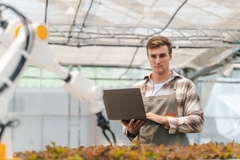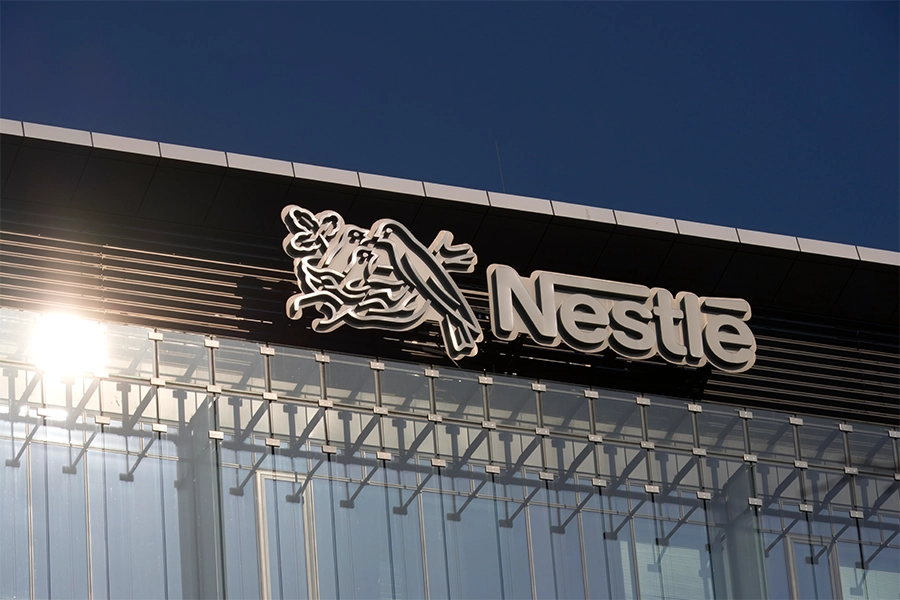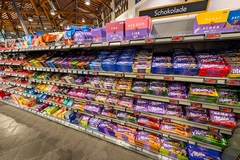
- Industry news
Industry news
- Category news
Category news
- Reports
- Key trends
- Multimedia
- Journal
- Events
- Suppliers
- Home
- Industry news
Industry news
- Category news
Category news
- Reports
- Key trends
- Multimedia
- Events
- Suppliers
AI and automation: Nestlé enhances innovation and speed in major digital upgrade
Key takeaways
- Nestlé launches a major digital upgrade powered by next-gen SAP technology to boost agility, innovation, and responsiveness to evolving consumer trends.
- AI and automation are integrated across operations to enhance decision-making, streamline tasks, and optimize the supply chain.
- The global rollout is underway, with 50,000 users across 112 countries already using the system. Full implementation is planned within two years.

As AI continues to revolutionize the F&B industry, helping manufacturers and brands integrate smart tools and digital systems into their innovation pipelines, Nestlé has announced a major upgrade of its digital operations.
Hailed as a “digital transformation,” the upgrade is based on SAP (Systems, Applications & Products) technology and will enable the Swiss F&B giant to be more agile, grow and innovate faster, and respond more quickly to evolving consumer trends.
By leveraging the next generation of SAP technology, Nestlé can use AI and automation more effectively to improve a range of processes across company operations.
It includes embedding SAP’s AI copilot directly into Nestlé’s core business systems, helping employees access insights, automate routine tasks, and make faster, more informed decisions.

Optimizing operations
In addition to responding to consumers’ changing desires, the system bolsters retailers’ needs by strengthening supply chain management, procurement, order fulfillment for retailers, and investment prioritization.
“Driving growth through innovation is a top priority. We are transforming our business to invest more boldly in the best opportunities. We need to combine great consumer insights and innovation with flexibility and scale, to provide great quality products to consumers around the world when, where, and how they want them,” says Anna Manz, Nestlé CFO, who is responsible for Integrated Business Services.
“This upgrade will help us build multi-year innovation pipelines, more agile production, and digital-first marketing and sales platforms for areas like cold coffee, therapeutic pet food, and modern cooking aids.”
Nestlé initially integrated around 50,000 users across 112 countries in its Asia, Oceania, and Africa regions, who are already using the new system’s capabilities. It plans to complete the upgrade across the rest of the Group within the next two years.
AI advancements across F&B
Nestlé’s major AI and digital overhaul comes amid a surge in F&B businesses using AI systems to make faster, better, more informed decisions. Brands are beginning to unlock AI’s full power, while global consumers are becoming more curious about AI in general.
Universities, start-ups, and other stakeholders are also conducting more AI-driven R&D and forming partnerships to help shape the future of food. Nestlé accelerates its digital transformation with next-gen SAP technology, embedding AI and automation to boost innovation, agility, and supply chain efficiency across global operations.
Nestlé accelerates its digital transformation with next-gen SAP technology, embedding AI and automation to boost innovation, agility, and supply chain efficiency across global operations.
Innova Market Insights data shows an increase in AI claims on F&B packaging, with a 67% increase from 2023 to 2024, as consumers express curiosity about AI. Meanwhile, 30% of consumers globally are eager for AI-powered F&B products that enhance health benefits, signaling a growing interest in its potential.
The market researcher indicates that 30% of global consumers say: “I want AI-powered food and beverages that enhance health benefits.” One in five consumers says they would like to see AI-powered F&B development focused on environmental and ethical sustainability.
Some of this year’s AI-enhanced R&D and innovation include Hong Kong researchers developing AI-enhanced 3D food printing tech to advance personalized nutrition, and FoodChain ID and ReSeed collaborating on an AI-enhanced regenerative agriculture initiative.
Earlier this year, researchers at Stanford University, US, worked to close the texture gap between plant-based meat and animal meat by combining a three-dimensional mechanical technique and AI to mimic human sensory experience.
Meanwhile, California-based Chef Robotics developed a robotic assembly system for the food industry that uses computer vision and AI to handle various ingredients.









